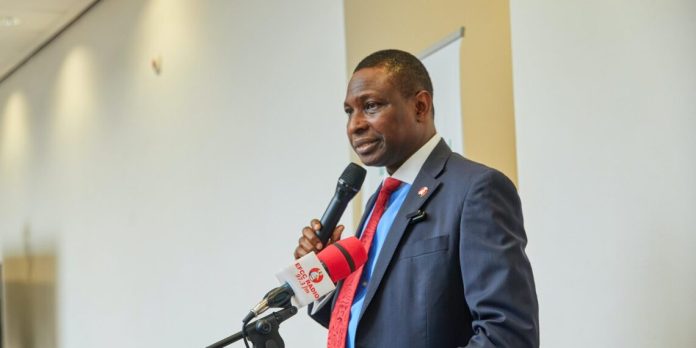The Economic and Financial Crimes Commission (EFCC) raises concerns over foreign syndicates recruiting young Nigerians to engage in cryptocurrency-related fraud.
EFCC Chairman Ola Olukoyede makes this known in Abuja while addressing participants of the Executive Intelligence Management Course (EIMC) 18 from the National Institute for Security Studies (NISS). He states that these syndicates are establishing operations in Nigerian cities, involving young people in organized cybercrime.
Foreign Nationals Involved in Cyber Fraud
Olukoyede reveals that a recent special operation in Lagos results in the arrest of 194 foreign nationals, including individuals from China, the Philippines, Eastern Europe, and Tunisia. He notes that many of them lack valid visas and primarily conduct financial transactions using cryptocurrency.
“Some of the foreigners we arrested are ex-convicts in their home countries. Our investigations show they are expanding criminal networks across Africa, not just Nigeria,” he explains.
The EFCC Chairman emphasizes the need for coordinated efforts at both national and continental levels to combat the increasing threat of cyber fraud. He urges security, intelligence, and law enforcement agencies across Nigeria and Africa to collaborate in tackling foreign organized crime groups.
Legal Action Against Crypto Fraud Suspects
The EFCC recently arraigns 17 Chinese nationals and Genting International Co. Ltd before Justice Musa Kakaki and Justice Daniel Osiagor of the Federal High Court, Ikoyi, Lagos, over allegations of cryptocurrency fraud and related offenses.
Those charged on February 21, 2025, include Mao Bu Yi, Li Xiang Long, Dai Li, Yu Hai Qing, Jia Yang, and Jia Zhi, among others. They are part of the 792 suspects arrested during the “Eagle Flush Operation” on December 10, 2024, for involvement in cryptocurrency investment scams and romance fraud.
The EFCC remains committed to intensifying efforts against cybercrime, stressing its impact on national security and financial stability.












